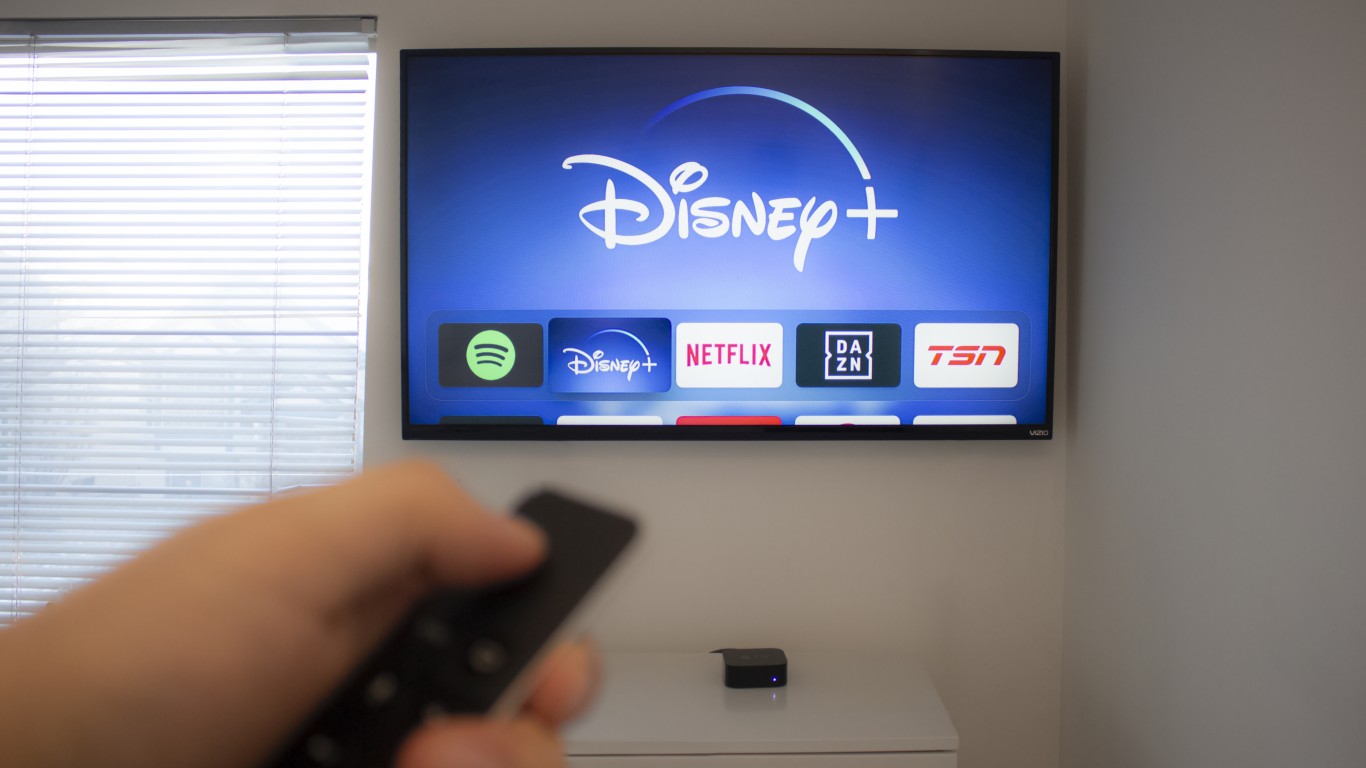
Of a dozen firms that reported earnings before markets opened on Wednesday, eight beat estimates and four missed. That is identical with Tuesday’s split and well below an earlier pace in which nearly 90% of results beat estimates.
We already have previewed five companies scheduled to report earnings after markets close Wednesday (Clover Health, eBay, Lordstown Motors, Nio and Opendoor) and three more set to report before the opening bell Thursday (Baidu, iQiyi and Palantir).
[in-text-ad]
Here is a preview of five companies scheduled to release results after markets close on Thursday. There are no notable earnings reports due at either end of Friday’s trading session.
Airbnb
When vacation rental giant Airbnb Inc. (NASDAQ: ABNB) came public early last December with an IPO price of $68 and an opening bid of $146, it appeared the sky would be the limit. By early February, the stock had risen another $80. As of Tuesday’s close, the stock was up 2.25% from its opening bid. The expected boost to Airbnb’s boost from fewer restrictions on travel have been mostly dashed by the surging Delta variant of the coronavirus.
Analysts remain relatively bullish on the stock, with 17 of 35 putting Buy or Strong Buy ratings on the stock and another 16 rating the shares at Hold. At a recent price of around $145.90, the stock’s upside potential based on a median price target of $170 is 16.5%. At the high price target of $220, the upside potential is almost 51%.
Airbnb is expected to post revenue of $1.97 billion in the second quarter, up 43% sequentially. Adjusted earnings per share (EPS) are forecast to rise sequentially from a per-share loss of $1.37 to $0.61. For the year, analysts expect to see a loss per share of $0.97, compared with a loss per share in 2020 of $15.39. Revenue is forecast to rise nearly 61% to $5.43 billion.
The stock trades at 281.2 times estimated 2022 EPS and 139.7 times estimated 2023 earnings. The stock’s post-IPO range is $121.50 to $219.94. Airbnb does not pay a dividend.
 24/7 Wall St.
24/7 Wall St.3 Buy-Rated Business Development Companies Pay Some of Wall Street’s Highest Dividends
ContextLogic
Over the past two months, mentions of ContextLogic Inc. (NASDAQ: WISH) on WallStreetBets have dropped from a high of more than 600 a day to around 30. The company’s stock still trades more than 66 million shares a day, but the stock has dropped almost 44% of its value so far in 2021. At the peak of the meme enthusiasm, shares soared by around 85%, and they still maintain a 33% premium to their price on June 1. ContextLogic provides a mobile e-commerce platform, along with a marketplace and logistics services for merchants.
[in-text-ad]
Analysts are mostly bullish on the shares, but two brokerages recently downgraded the stock from the equivalent of Buy to Neutral. That still left 10 of 12 ratings at Buy or Strong Buy. At the price of around $10.10, the upside potential to the average price target of $18 is 78%. At the high target of $24, the upside potential is about 138%.
Analysts expect the company to report quarterly revenue of $722.92 million and a loss per share of $0.14. For the full year, estimates call for revenue of $3.15 billion and per-share loss of $0.56.
Growth estimates are not available. The stock’s 52-week range is $7.52 to $32.85. ContextLogic does not pay a dividend.
Disney
One of the Dow Jones industrial average components, Walt Disney Co. (NYSE: DIS) has delivered a share price increase of about 38% over the past 12 months. In 2020, Disney managed to add about 25% to its share price, despite the closure of most of its parks and resorts due to COVID-19. The company’s hugely successful streaming service gets the credit, a function of both its low price and the fact that most school-aged children were home for most of the year.
Analysts remain bullish on the stock, with 22 of 27 assigning Buy or Strong Buy ratings and another four giving the shares a Hold rating. At a price of around $177.80, the stock’s implied upside based on a median price target of $212 is 19%. At the high target of $230, the implied upside is more than 29%.
Fiscal third-quarter revenue is forecast to rise sequentially by about 7.4% to $16.76 billion. The total represents a boost of 42% year over year. Adjusted EPS is forecast at $0.55, down more than 30% sequentially, but up almost sevenfold compared with EPS of $0.08 in the year-ago quarter. For the full fiscal year, analysts expect EPS to rise nearly 18% to $2.38 on a revenue increase of 3.4% to $67.61 billion.
Disney shares trade at 74.3 times expected 2021 EPS, 35.2 times estimated 2022 earnings and 27.4 times estimated 2023 earnings. The stock’s 52-week range is $117.23 to $203.02. Disney has suspended its dividend payments.
Seer
Judging by the average daily trading volume of fewer than 500,000 shares, not many investors have heard of or do not pay attention to Seer Inc. (NASDAQ: SEER), a company that develops and commercializes an integrated suite of products researchers are using to describe the entire complement of human proteins.
[in-text-ad]
One investor in the company’s stock is Cathie Wood’s ARK Genomic Revolution ETF, which increased its ownership of Seer stock by about 78% in the June quarter and reported June 30 holdings of just over 1.5 million shares valued at about $49.5 million. Institutional investors hold more than 88% of the stock’s total float.
Of just four analysts covering the stock, two give the shares a Buy rating and two a Hold rating. At a price of around $29.50, the implied upside to the median price target of $55 is 86%. At the high target of $75, the implied upside is 154%.
Analysts expect the company to post revenue of $790,000 and a loss per share of $0.28 for its second quarter. The full-year loss per share is forecast to be $1.43, and revenue is expected to total $3.82 million, compared with prior year revenue of $656,000.
Seer is not expected to make a profit in 2021, 2022 or 2023. Growth estimates are not available. The company came public in early December of last year, and its post-IPO trading range is $26.48 to $86.55. The company does not pay a dividend.
SoFi
SoFi Technologies Inc. (NASDAQ: SOFI) came public in early June in a SPAC merger that valued the fintech company at around $8.65 billion. Since then, the online personal finance platform’s market cap has increased to about $13.6 billion, while the share price has declined by about 24%. The initial valuation did not include the January combination with Chamath Palihapitiya’s Social Capital Hedosophia Holdings Corp. IV SPAC, which took place before the IPO.
Only three brokerages cover the company, with two giving the stock a Buy rating and the other assigning a Strong Buy rating. At a price of around $17, the implied upside to the median price target of $23 is 33%. At the high target of $30, the implied upside is 76%.
Second-quarter revenue is forecast to come in at $218.6 million and SoFi is expected to lose $0.06 per share. For the full year, the per-share loss is pegged at $0.33 on sales of $973.74 million.
SoFi is not expected to post a profit in either 2021 or 2022, but 2023 profit is estimated at $0.12 per share. The stock currently trades at 8.6 times its enterprise value-to-sales ratio. That ratio is estimated at 5.7 in 2022 and 4.0 in 2023. The stock’s post-IPO trading range is $11.80 to $28.26, and the company does not pay a dividend.
Thank you for reading! Have some feedback for us?
Contact the 24/7 Wall St. editorial team.

 24/7 Wall St.
24/7 Wall St.



